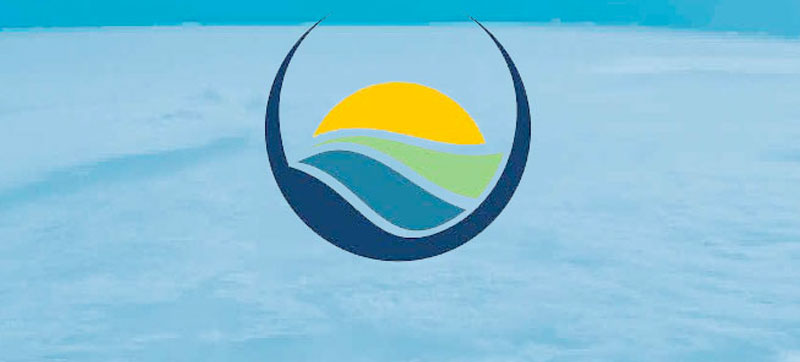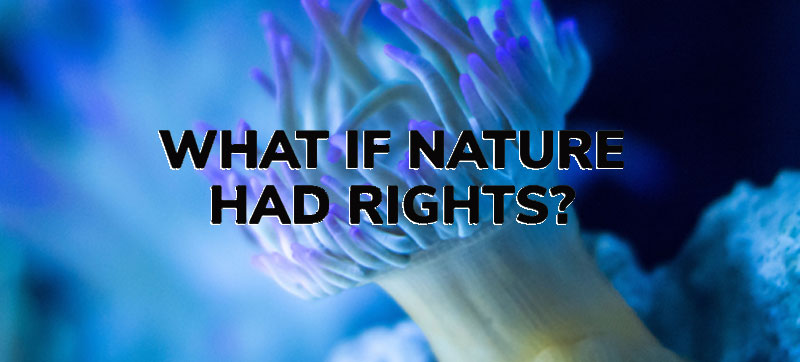What If Nature Had Rights?
The Earth Law Center is a New York-based environmental non-profit organization dedicated to the concept that Nature, as an ecosystem, deserves the same rights as humans to exist, thrive, evolve and be protected by law. This week on the blog we share the scope of their work and advocacy, their programs and values, and the communities that are served by their involvement in American and international environmental court cases, laws, briefs and resolutions.

Law brings order to chaos. We have international treaties as agreements between nations. We have legislated statutes that provide structure to civil behavior. We have regulations that counter abuse. We have contracts that define terms of exchange. We have moral laws that are powerful guidelines for human conduct.
Environmental law pertains to all these categories. And we have many organizations, and individuals, to write, analyze, promote, and challenge others, using the law as a fulcrum for innovation, equity, and justice. More and more we see environmental conflicts restoring to litigation and judicial proceedings for resolution. In the laws we must trust if we expect to retain our rights in a civilized society.
What does the word RIGHTS actually mean?
A search through Black’s Law Dictionary left me overwhelmed and dissatisfied, proof of my Father’s judgment that his profession was one I had best not pursue. Here is the clearest general definition I could find: “Rights are legal, social, or ethical principles of freedom or entitlement; that is, rights are the fundamental normative rules about what is allowed of people or owed to people, according to some legal system, social convention, or ethical theory.” Note the assignment to people exclusively, a fundamental assertion of humankind as the epicenter of social interaction, all other circumstance excluded. But that social interaction relies on Nature as its source and supply for living: for air, land, and water, not just as gifts for the taking to exhaustion, but as loans for the sustaining of life and the repaying of that debt so that life may endure.
Thus, today, to defend the rights of Nature is an anomalous and courageous endeavor, out of normative context, demanding that we examine our historical and present values, structures, and behaviors to change them toward a new system of laws that is now essential to human survival. Survival? Yes, it does seem that essential and urgent.
The World Ocean Observatory advocates for the conservation of the ocean/freshwater continuum as a scientific, political, financial, cultural, and moral imperative, and one of the best agents for such purpose is the Earth Law Center, based in New York, which addresses the innovative, revolutionary concept that Nature, as ecosystem, just as people, should have the right to exist, thrive, evolve, and assert accepted rights for protection by law — a right that would accrue to the benefit of everyone on Earth.

Earth Law divides its work between river and land rights and ocean and coastal rights to protect these systems from climate change, contamination, invasive species, destructive exploitation, and detrimental human intervention through various specific strategies in many places around the world. Its programs involve the codifications and declarations of rights, initiatives in the US, Africa, South America, Asia, and elsewhere. Earth Law advocates by educational outreach and training, creating and promoting legal reforms in specific locales and situation, at the United Nations, and through legal publications and training for young lawyers who are drawn to this necessary transformation of policy, governance, engagement, and protection of Nature. Earth Law has inserted itself into the public dialogue through authoring laws and resolutions in certain communities, amicus briefs and comment letters in national and international cases, speeches and testimony in conferences and public hearings, book chapters and journal articles, educational videos, and the preparation of a new law school textbook to expand “critical analysis of legal solutions to problems that threaten Earth as a human habitat, presenting sources of study that include American and international court cases; International Charters and Declarations; local, national, and international laws; jurisprudence; indigenous peoples’ laws; animal rights; guardianship; and public interest litigation strategy. It is a complicated but very effective agenda for a small but very successful endeavor.
My personal thoughts on these matters take me to the idealistic notion of ethos defined as “the fundamental character or spirit of a culture; the underlying sentiment that informs the beliefs, customs, or practices of a group or society; dominant assumptions of a people or a period.” Is it not then the highest goal for today; to establish a system that affirms the rights of Nature as the core principle in a new global ethos revealed by a fresh expression and application of reformed beliefs, customs, and practices that must become the dominant assumption of our time?
- - -
- Login to post comments
-


